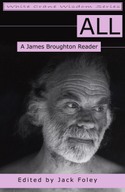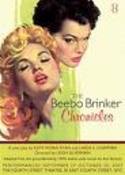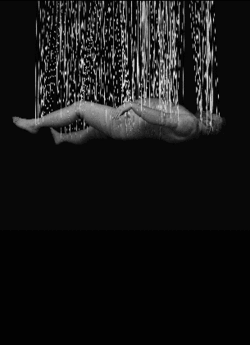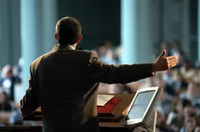 I loved every minute of the Lammy’s evening of awards. Congratulations to the Lammys, which have moved to Los Angeles (along with Charles Flowers, the real loss for New York). Twenty years is no small accomplishment. May you continue forever.
I loved every minute of the Lammy’s evening of awards. Congratulations to the Lammys, which have moved to Los Angeles (along with Charles Flowers, the real loss for New York). Twenty years is no small accomplishment. May you continue forever.
Alas, White Crane’s ALL: A James Broughton Reader was, inexplicably, not a finalist for the LGBT Arts and Culture category. I have to admit…all sour grapes aside…I don’t understand how this important collection of one of the leading voices of queer writing and film could be so blatantly ignored. Winning would have been gravy. But it should have been a finalist. There…I got that off my chest.
Friend, Kitt Cherry, was nominated for her boook Art That Dares was one of five books chosen in the LGBT Arts and Culture category. Unfortunately it didn’t win, but congratulations Kitt. You do wonderful work and we’re proud to feature your work in White Crane. [2008 Lammy winners]
It was a wonderful evening. It was a delight to be in an auditorium with all the hardworking GLBT authors. I think the Lambda Literary Foundation needs to rethink the process and break down and let the winners know they’ve won. Too many of them opted not to fly cross country (when flying is nothing short of a penance!) only to find out that they hadn’t won. Personally I think we owe it to our own institutions to support them, whether we’re winners or not (or…ahem…finalists!) But practical is practical and if the Lammys really want to be the important award they are, it sort of undercuts that end when the winners aren’t present to receive their beautiful crystal book award. And there’s far too much attention to the big publishers…[and they wonder why Gay publishers are folding left and right?]
I’m not quite sure what our sisters made of all the “penis humor” which was…shall we say…somewhat flaccid? But equal time for bad Lesbian humor was well-represented by a Lesbian comic troupe called "The Gay Mafia" performed a Lesbian science fiction scene that was, at best, sort of obligatory. And why is it that Lesbians get to make penis jokes and if Gay men said anything about women’s genitalia we would lose ours? Let it be duly noted: Lesbians can be as embarrassingly bad as Gay men.
For the most part, this is a graying (if eminent) crowd. Youth was represented, but there was, overall, a nice balance of age. The President of the LLF has been handed off (in another series of penis allusions with a "baton") from the eminent and splendid Terry Decrescenzo to best-selling author (and son of newly-minted Christian, Anne Rice) Christopher Rice in a clear play for the Los Angeles celebrity and youth crowd. I get it. Lambda needs to do this. The whole publishing world needs to get connected with the short-attention span crowd. At least he’s out-Gay. For the Los Angeles Gay scene, this is not always a given (see "Hilton, Paris/Gay Pride 2005").
There was a moving (if somewhat overlong) "In Memoriam" slide show, that had all the authors who had died in the past 20 years — 1988 to 2008, since it was the 20th anniversary of the Lammys. Tears and fond sighs were the order of the day as all our literary heroines’ and heroes’ faces looked out at us from the silver screen. Even Valerie Solanas, the radical feminist who wrote "Scum Manifesto" and who shot Andy Warhol, was up there. The obligatory applause response sort of faded away long before the slide show was over. Maybe some of the authors in the slide show were not well-known to everyone in the audience. But my suspicion was more along the lines that the reaction was “Why are we doing this?” Is it really necessary to parade this dirge-like presentation? I’m all for acknowledgment of our elders and our ancestors, to be sure…but it seems to me it might have been a little more celebratory in tone as opposed to the somber tone it took. Mystery pioneer Katherine V. Forrest presented a Pioneer award to Ann Bannon,
Mystery pioneer Katherine V. Forrest presented a Pioneer award to Ann Bannon,  who wrote the Lesbian Beebo Brinker novels in the 1950s, which has recently been staged by our friend Linda Chapman (The Beebo Brinker Chronicles), and whom every Lesbian of a certain age has read and revered. Her character Beebo Brinker is nothing short of legend. Forrest attested, as she struggled not to cry, she that Ann Bannon’s books had saved her life. This is what all this publishing is all about. And we must never forget that. Every day, somewhere, there is some Gay kid looking to find some reflection of himself or herself in the world. Like most people, the only place I ever found it was in the dictionary. Ann Bannon is a lovely woman, whose warm smile lit up the room. Her books saved lives. I had the pleasure of meeting her in New York when The Beebo Brinker Chronicles opened and she couldn’t have been more delightful then, and more deserving of this acknowledgment now. Congratulations to Ms. Bannon.
who wrote the Lesbian Beebo Brinker novels in the 1950s, which has recently been staged by our friend Linda Chapman (The Beebo Brinker Chronicles), and whom every Lesbian of a certain age has read and revered. Her character Beebo Brinker is nothing short of legend. Forrest attested, as she struggled not to cry, she that Ann Bannon’s books had saved her life. This is what all this publishing is all about. And we must never forget that. Every day, somewhere, there is some Gay kid looking to find some reflection of himself or herself in the world. Like most people, the only place I ever found it was in the dictionary. Ann Bannon is a lovely woman, whose warm smile lit up the room. Her books saved lives. I had the pleasure of meeting her in New York when The Beebo Brinker Chronicles opened and she couldn’t have been more delightful then, and more deserving of this acknowledgment now. Congratulations to Ms. Bannon.
 Finally, the other Pioneer awards went to our dear friends Malcolm Boyd, who is
Finally, the other Pioneer awards went to our dear friends Malcolm Boyd, who is  going to be 85 years young this very weekend, and his lion-hearted partner, Mark Thompson, both White Crane authors and contributors. They’re both grand old gay men of letters. White Crane has published the essential Malcolm Boyd reader in recognition of his 85th year, A Prophet in His Own Land: A Malcolm Boyd Reader.
going to be 85 years young this very weekend, and his lion-hearted partner, Mark Thompson, both White Crane authors and contributors. They’re both grand old gay men of letters. White Crane has published the essential Malcolm Boyd reader in recognition of his 85th year, A Prophet in His Own Land: A Malcolm Boyd Reader.
In all…a lovely event. On a personal note, Mark and Malcolm hosted me in their beautiful home for a very smart (in every sense of the word!) cocktail party with the literati of Los Angeles in attendance. I must admit it was a real honor to have such an illustrious and accomplished crowd assembled…to say nothing of it being in my honor (and Malcolm’s, too). To return to the City of Angels after 25 years and receive such a welcome was gratifying, humbling and sweet. Thank you M & M!


